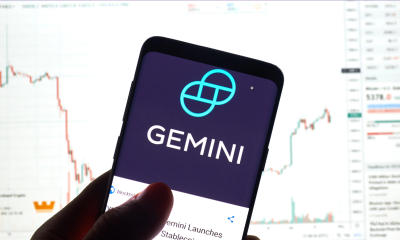Regulation
New government legislation could open up sports betting in Alberta, Canada by end of this year


- Alberta’s Bill 16 will allow third-party operators in online gambling by 2025
- The province aims to capture grey market bets and boost revenue like Ontario
- Safeguards like self-exclusion and player monitoring will promote responsible gambling
Alberta is on the brink of a significant shift in its online gambling landscape. With the passage of Bill 16, the province aims to open up sports betting, iGaming, and crypto casinos to third-party operators by the end of this year.
Alberta’s move follows Ontario’s example and is designed to capture the grey market while promoting responsible gambling through updated regulations and safeguards.
Bill 16 a game-changer for Alberta’s gambling industry
In May, the Alberta government passed Bill 16, also known as the Red Tape Reduction Statutes Amendment Act, marking a monumental shift in the province’s approach to online gambling.
The bill, which received Royal Assent shortly after, allows the provincial government to oversee and regulate online gaming alongside Alberta Gaming, Liquor and Cannabis (AGLC). This opens the door for private, licensed operators to enter the Alberta market, replacing the government’s previous monopoly on legal online gambling.
Currently, the only legal option in Alberta is PlayAlberta, a platform managed by AGLC that offers casino games and sports betting. However, offshore “grey market” sites like Bet365 and Bodog continue to attract many Albertans, contributing to an unregulated market.
Ontario implemented a similar model in 2022, which generated $1.48 billion in total gaming revenue during its first year and Alberta’s government hopes to replicate this success by drawing bets away from illicit markets and boosting its own revenues.
Alberta’s expansion plans aim to address the limitations of PlayAlberta and enhance competition. The provincial government is currently in the process of consultations with industry stakeholders to determine the best path forward.
Though a specific launch date has yet to be set, Service Alberta and Red Tape Reduction Minister Dale Nally has emphasized that the government intends to act quickly once a final strategy is determined.
Regulated expansion with a focus on safety
While opening the Canadian sports betting market offers lucrative revenue opportunities, the move is not without its challenges. Alberta is mindful of the potential risks associated with an expanded gambling market, particularly in terms of problem gambling and addiction.
David Hodgins, a professor of clinical psychology at the University of Calgary and research director with the Alberta Gaming Research Institute, expressed concerns about the social impacts of having multiple operators in the province. He emphasized the importance of implementing strong safeguards to minimize harm.
To promote responsible gambling, Alberta is looking to adopt measures like self-exclusion programs that would allow individuals to ban themselves from all gambling sites within the province. Ontario is working toward such a system, and Alberta is keen to follow suit.
Minister Nally confirmed that he is interested in provincewide self-exclusion tools, as well as monitoring player behaviour to detect sudden shifts in betting patterns—another strategy aimed at curbing problem gambling.
Revenue splits between the government and private operators are also being reviewed. Ontario takes 20% of revenues from regulated gambling websites, a model Alberta is studying closely. A balance must be struck to ensure the tax rate is appealing enough to encourage operators to join Alberta’s market, while also generating significant revenue for the province.
As Alberta moves closer to an open, regulated online gambling market, it seeks to capture the benefits seen in Ontario while ensuring safety and responsible gaming practices.
With consultations nearing completion, and regulatory frameworks being refined, the province could see a new era of sports betting and iGaming by the end of 2024 or early 2025.
Regulation
Japan Set To Classify Cryptocurrencies As Financial Products, Here’s All

Cryptocurrency investors in Japan are bracing for impact following a plan to reclassify digital assets as financial products. While the plan has elicited excitement from cryptocurrency enthusiasts in the Far East, the ambitious plan will have to scale several legislative hurdles.
Japan Targets Reclassification Of Cryptocurrencies As Financial Products
According to a report by Nikkei, Japan’s Financial Services Agency (FSA) is inching toward classifying cryptocurrencies as financial products. Per the report, the FSA intends to achieve the reclassification via an amendment to the Financial Instruments and Exchange Act.
Currently, digital assets in Japan are considered crypto assets conferred with property rights and seen as payment means. Under the FSA’s plans, cryptocurrencies in Japan will be treated as financial products in the same manner as traditional financial products.
The FSA says it will adopt a slow and steady approach toward the reclassification, carrying out “a private expert study group” to test the waters. If everything goes according to plan, the FSA will submit the amended bill to Parliament in early 2026.
The classification of cryptocurrencies as financial products will have far-reaching consequences for the local ecosystem. Experts say treating cryptocurrencies as financial products will bring Japan closer to a crypto ETF launch amid a changing regulatory landscape.
Furthermore, the move may lower current cryptocurrency taxation for local investors since existing capital market rules will apply to the asset class.
A Fresh Bill For Crypto Insider Trading Is Underway
Apart from the reclassification, the FSA disclosed plans for new legislation against insider trading. The move flows treating cryptocurrencies as financial products and will strengthen existing investor protection rules.
“It is a direction to establish a new insider trading regulation that prohibits trading based on unpublished internal information,” said the FSA. “We will develop laws to prevent unfair transactions.”
However, Japan’s cryptocurrency scene is heating up to a boil, driven by local and international players. Last week, stablecoin issuer Circle secured approval from the FSA for USDC with top exchanges set to list the stablecoin.
Japan’s Metaplanet has tapped Eric Trump to join its Strategic Board of Advisors as it continues to load up Bitcoin.
Disclaimer: The presented content may include the personal opinion of the author and is subject to market condition. Do your market research before investing in cryptocurrencies. The author or the publication does not hold any responsibility for your personal financial loss.
Regulation
Kentucky Governor Signs Off On ‘Bitcoin Rights’ Bill, Strengthening Crypto Protections


In what is being dubbed a major development in the crypto regulation space, the Governor of the US state of Kentucky, Andy Beshear, has signed the ‘Bitcoin Rights’ bill into law. The law promises to safeguard protections for Bitcoin (BTC) users.
Bitcoin Rights Bill Comes Into Effect
Crypto regulations continue to evolve under pro-crypto US President Donald Trump’s administration. In the latest development, Kentucky has become the newest state to enshrine protections for digital asset users.
In an X post published on March 24, crypto advocacy group Satoshi Action Fund announced that Governor Beshear had signed the much-anticipated Bitcoin Rights bill into law. The post stated:
The right to self-custody, run a node, and use of digital assets is now protected for millions of Americans without fear of discrimination.
The bill was first introduced to the Kentucky House by Rep. Adam Bowling on February 19. According to the bill’s description, it seeks to safeguard users’ rights to use digital assets and self-custody wallets. Additionally, it aims to prohibit local zoning changes that discriminate against crypto mining operations.
The legislation outlines guidelines for running a digital asset node and excludes digital asset mining from money transmitter license requirements. It also clarifies that crypto mining or staking is not considered an offer or sale of securities.
On February 28, the bill passed Kentucky’s House of Representatives with a unanimous vote of all 91 representatives in favor. It later passed the Kentucky Senate on March 13, receiving backing from all 37 senators.
Kentucky’s proactive stance toward cryptocurrencies isn’t new. Earlier this year, the state became the 16th US state to introduce legislation seeking to create a Bitcoin strategic reserve.
Meanwhile, neighboring state Arizona is also joining the crypto movement. A recent X post by Bitcoin Laws revealed that Arizona’s House Rules Committee has passed two Bitcoin reserve bills — SB1373 and SB1025. These bills will now head to a full floor vote.
Renewed Optimism Under Trump Administration
Following Trump’s victory in the November presidential election, cryptocurrency regulations in the US are evolving rapidly, with many states introducing legislation aimed at strengthening their digital asset ecosystems and attracting crypto businesses.
Positive changes in crypto regulations are encouraging industry businesses to expand. For instance, leading crypto trading platform Coinbase recently announced plans to hire 1,000 employees in the US.
The Trump administration has also witnessed several lawsuits being dropped against major crypto entities, including Kraken, Coinbase, Gemini, and others. At press time, Bitcoin trades at $87,399, down 0.2% in the past 24 hours.

Featured Image from Unsplash.com, chart from TradingView.com

Editorial Process for bitcoinist is centered on delivering thoroughly researched, accurate, and unbiased content. We uphold strict sourcing standards, and each page undergoes diligent review by our team of top technology experts and seasoned editors. This process ensures the integrity, relevance, and value of our content for our readers.
Regulation
US SEC Drops Charges Against Hawk Tuah Girl Hailey Welch

Hawk Tuah girl Hailey Welch, known for her association with the controversial $HAWK token, has been cleared of any wrongdoing after a lengthy investigation by the U.S. Securities and Exchange Commission (SEC). The SEC has decided not to press charges against Welch in connection with the rapid rise and subsequent collapse of the meme-based cryptocurrency.
US SEC Investigation Into Hawk Tuah Girl Concludes Without Charges
The SEC had launched an investigation into the $HAWK token after its dramatic price drop. The token, which was linked to Welch’s viral persona, initially saw a market cap surge to $490 million before crashing by over 90%. Investors who were impacted by the crash filed a lawsuit against those behind the project, alleging that the coin had been promoted and sold without proper registration.
Hawk Tuah girl Hailey Welch, who cooperated fully with the investigation, expressed relief after the SEC’s decision. “For the past few months, I’ve been cooperating with all the authorities and attorneys, and finally, that work is complete,” Welch told TMZ.
Her attorney, James Sallah, confirmed that the SEC had closed the case without any findings against her, adding that there would be no monetary sanctions or restrictions on Welch’s future involvement in cryptocurrency or securities.
This Is A Developing News, Please Check Back For More
Disclaimer: The presented content may include the personal opinion of the author and is subject to market condition. Do your market research before investing in cryptocurrencies. The author or the publication does not hold any responsibility for your personal financial loss.
-

 Altcoin24 hours ago
Altcoin24 hours agoEthereum Price Falls Below $1900 As Expert Blames Decline On Network Stagnation
-

 Altcoin22 hours ago
Altcoin22 hours agoGemini Crypto Exchange Announces Rewards For XRP Users, Here’s How To Get In
-

 Market15 hours ago
Market15 hours agoWhale Leverages $27.5 Million PEPE Long on Hyperliquid
-

 Ethereum14 hours ago
Ethereum14 hours agoEthereum MVRV Ratio Nears 160-Day MA Crossover – Accumulation Trend Ahead?
-

 Ethereum13 hours ago
Ethereum13 hours agoEthereum May Have Hit Cycle Bottom, But Pricing Bands Signal Strong Resistance At $2,300
-

 Market13 hours ago
Market13 hours agoBitcoin (BTC) Whales Accumulate as Market Faces Uncertainty
-

 Ethereum12 hours ago
Ethereum12 hours agoEthereum Analyst Eyes $1,200-$1,300 Level As Potential Acquisition Zone – Details
-

 Bitcoin12 hours ago
Bitcoin12 hours agoGold Keeps Outperforming Bitcoin Amid Trump’s Trade War Chaos























✓ Share: